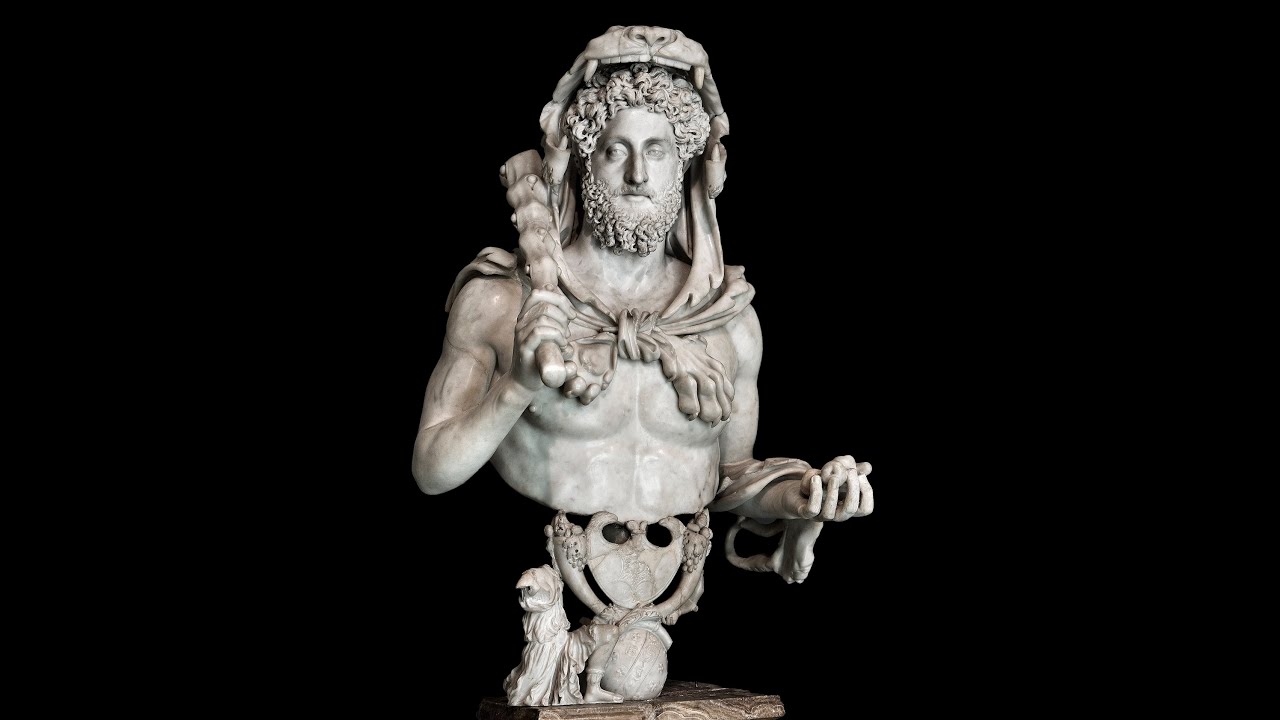
Commodus, the Roman Emperor from 180 to 192 AD, is often remembered as one of Rome's most controversial rulers. Known for his erratic behavior and love for gladiatorial combat, he left a lasting mark on history. But who was Commodus really? Was he a mad tyrant or a misunderstood leader? This blog post dives into 40 intriguing facts about Commodus, shedding light on his life, reign, and the myths surrounding him. From his early years as the son of Marcus Aurelius to his dramatic downfall, you'll gain a deeper understanding of this complex figure. Get ready to explore the fascinating world of Commodus!
Early Life of Commodus
Commodus, born Lucius Aurelius Commodus on August 31, 161 AD, was a Roman Emperor who ruled from 180 to 192 AD. His reign marked the beginning of the decline of the Roman Empire.
- Commodus was born in Lanuvium, near Rome, to Emperor Marcus Aurelius and Empress Faustina the Younger.
- He had a twin brother named Titus Aurelius Fulvus Antoninus, who died at a young age.
- Commodus was the first Roman Emperor to be "born in the purple," meaning he was born during his father's reign.
- His education was overseen by his father, who was a Stoic philosopher, and included lessons in philosophy, rhetoric, and military tactics.
- At the age of five, Commodus was made Caesar, a title given to the heir apparent.
Ascension to Power
Commodus's rise to power was marked by a series of significant events that shaped his rule and the future of the Roman Empire.
- He became co-emperor with his father in 177 AD, sharing the responsibilities of ruling the vast empire.
- Commodus was only 18 years old when he became the sole emperor after his father's death in 180 AD.
- His ascension marked the end of the Pax Romana, a period of relative peace and stability across the Roman Empire.
- Commodus's reign began with a peace treaty with the Germanic tribes, ending the Marcomannic Wars.
- He was known for his lavish lifestyle and extravagant spending, which strained the empire's finances.
Reign and Governance
Commodus's reign was characterized by a mix of administrative decisions, public spectacles, and personal indulgences.
- He renamed Rome to "Colonia Commodiana," meaning "City of Commodus."
- Commodus often participated in gladiatorial games, fighting in the arena, which was considered scandalous for an emperor.
- He claimed to be the reincarnation of Hercules, often dressing in lion skins and carrying a club.
- Commodus devalued the Roman currency, leading to economic instability.
- He was known for his cruelty and paranoia, executing many senators and nobles whom he suspected of treason.
Public Perception and Legacy
Commodus's actions and policies had a lasting impact on how he was perceived by his contemporaries and by history.
- He was deeply unpopular with the Roman Senate, who saw him as a tyrant.
- Commodus's reign was marked by numerous conspiracies and assassination attempts.
- He survived an assassination attempt by his sister Lucilla in 182 AD.
- Commodus's obsession with gladiatorial combat earned him the nickname "The Gladiator Emperor."
- His reign is often cited as the beginning of the decline of the Roman Empire.
Assassination and Death
The end of Commodus's life was as dramatic as his reign, culminating in a conspiracy that led to his assassination.
- Commodus was assassinated on December 31, 192 AD, at the age of 31.
- His assassination was orchestrated by his mistress Marcia, his chamberlain Eclectus, and the Praetorian Prefect Laetus.
- He was initially poisoned, but when the poison failed, he was strangled by a wrestler named Narcissus.
- After his death, the Senate declared him a public enemy and ordered the destruction of his statues.
- Commodus's death marked the end of the Nerva-Antonine dynasty.
Cultural Depictions
Commodus's life and reign have been depicted in various forms of media, reflecting his complex legacy.
- He is a central character in the 2000 film "Gladiator," portrayed by Joaquin Phoenix.
- Commodus has been featured in numerous historical novels, often as a villain.
- His reign is depicted in the TV series "Rome," highlighting his controversial actions.
- Commodus's life has inspired several plays and operas, focusing on his dramatic and tumultuous rule.
- He is often portrayed as a symbol of the corruption and decadence that led to the fall of the Roman Empire.
Interesting Tidbits
Beyond his political and military actions, Commodus's personal life and quirks offer fascinating insights into his character.
- Commodus had a passion for hunting and often participated in staged hunts in the Colosseum.
- He reportedly killed over 100 lions in a single day during one of these hunts.
- Commodus was known for his physical strength and athleticism, which he showcased in the arena.
- He had a harem of concubines and was infamous for his debauchery.
- Commodus's love for gladiatorial combat led him to fight in over 700 matches.
Historical Impact
The long-term effects of Commodus's reign were felt long after his death, influencing the course of Roman history.
- His assassination led to a brief period of civil war known as the Year of the Five Emperors.
- Commodus's reign is often seen as the beginning of the Crisis of the Third Century, a period of political instability and economic decline.
- His devaluation of the currency contributed to the financial troubles that plagued the empire in the following decades.
- Commodus's actions weakened the authority of the Senate, leading to increased power struggles among military leaders.
- Despite his controversial reign, Commodus remains a fascinating figure in Roman history, embodying both the grandeur and the flaws of the empire.
Commodus: A Legacy of Infamy
Commodus, the Roman Emperor, left a mark on history that’s hard to forget. His reign, filled with extravagance, cruelty, and self-indulgence, painted a vivid picture of a ruler more interested in personal glory than the well-being of his empire. From his obsession with gladiatorial combat to his bizarre claims of divinity, Commodus’s actions shocked and fascinated both his contemporaries and modern historians.
Despite his notorious reputation, Commodus’s reign offers valuable insights into the complexities of Roman imperial politics and the challenges of maintaining power. His story serves as a reminder of how absolute power can corrupt and the importance of leadership grounded in responsibility and humility.
Understanding Commodus’s life and actions helps us appreciate the delicate balance required to govern effectively. His legacy, though tainted by infamy, continues to captivate those interested in the rich tapestry of Roman history.
Was this page helpful?
Our commitment to delivering trustworthy and engaging content is at the heart of what we do. Each fact on our site is contributed by real users like you, bringing a wealth of diverse insights and information. To ensure the highest standards of accuracy and reliability, our dedicated editors meticulously review each submission. This process guarantees that the facts we share are not only fascinating but also credible. Trust in our commitment to quality and authenticity as you explore and learn with us.


